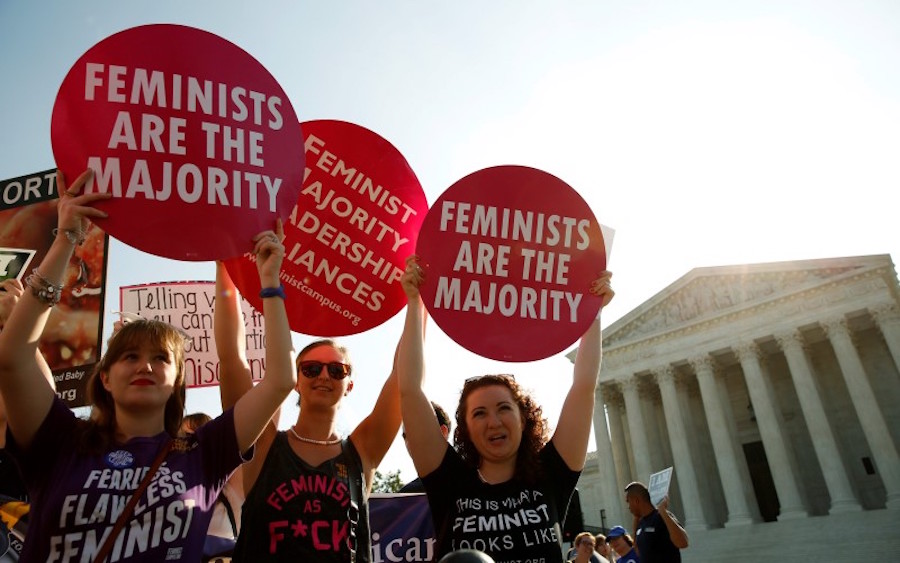With the retirement of Supreme Court Justice Anthony Kennedy — the crucial swing vote on an evenly divided liberal-conservative bench — there is concern that his replacement might enable the overturning of Roe v. Wade, the 1973 decision that women have a constitutional right to abortion. President Trump and Vice President Mike Pence have vowed to repeal it.
As Trump readies his nominee, which he says he’ll announce on July 9, what is the status of abortion in the United States now?
Is abortion legal?
Yes. Abortion is technically legal in the United States. Roe v. Wade declared that women can’t be criminally charged for choosing the procedure. Before that, abortion was illegal in many states, although several, like New York, had begun to legalize it. The Supreme Court’s decision held that, under the right to privacy specified by the Due Process clause of the Constitution, women have a federally protected right to end a pregnancy.
But in the 45 years since Roe v. Wade was decided, some states have chipped away it, passing state regulations that have made abortion more difficult to access. Since 2010, more than 400 state laws have been passed to that effect. For example, in 2013 Texas passed a law requiring abortion providers to meet strict standards and employ staff members with admitting privileges to local hospitals. The number of abortion clinics in the state dropped by half. In June 2017, the Supreme Court struck down the Texas law in a 5-3 vote, saying it “provides few, if any, health benefits for women, poses a substantial obstacle to women seeking abortions, and constitutes an ‘undue burden’ on their constitutional right to do so.”
But several other states have similar laws. In five — Wyoming, North Dakota, South Dakota and Mississippi — there is only one abortion clinic. In several others, there are only two or three.
How will abortion rights change if Roe v. Wade is repealed?
If the Supreme Court overturns Roe v. Wade, abortion would immediately become illegal in four states that have “trigger’ laws: Mississippi, Louisiana, North Dakota, and South Dakota. (Illinois had one on the books until last year, when it was repealed.)
In some states, the procedure would be legal in certain conditions: Rape, incest or if the life of the mother is in danger.
CNN legal analyst Jeffrey Toobin predicted that in the first 18 months after a repeal, abortion would be illegal in 20 states overall. “Let’s talk about what America is going to be like that’s different,” he said about the Supreme Court after Kennedy. “You are going to see 20 states pass laws banning abortion outright. Just banning abortion. Because they know that there are now going to be five votes on the Supreme Court to overturn Roe v. Wade.”
Other states would be expected to keep abortion legal, including New York, which first legalized it in 1970. Alaska, Hawaii and Washington had also permitted abortion before Roe v. Wade. Five other states (Maine, California, Nevada, Delaware and Maryland) all have laws that would preserve abortion rights.
But 24 states would pursue severe restrictions on abortion within seven months of a repeal, according to the “Guardian.” In Iowa, state law already bans abortion after six weeks’ gestation, and 20 others ban abortion before fetal viability (around 24 weeks) — all of which is currently illegal under Roe v. Wade.






















